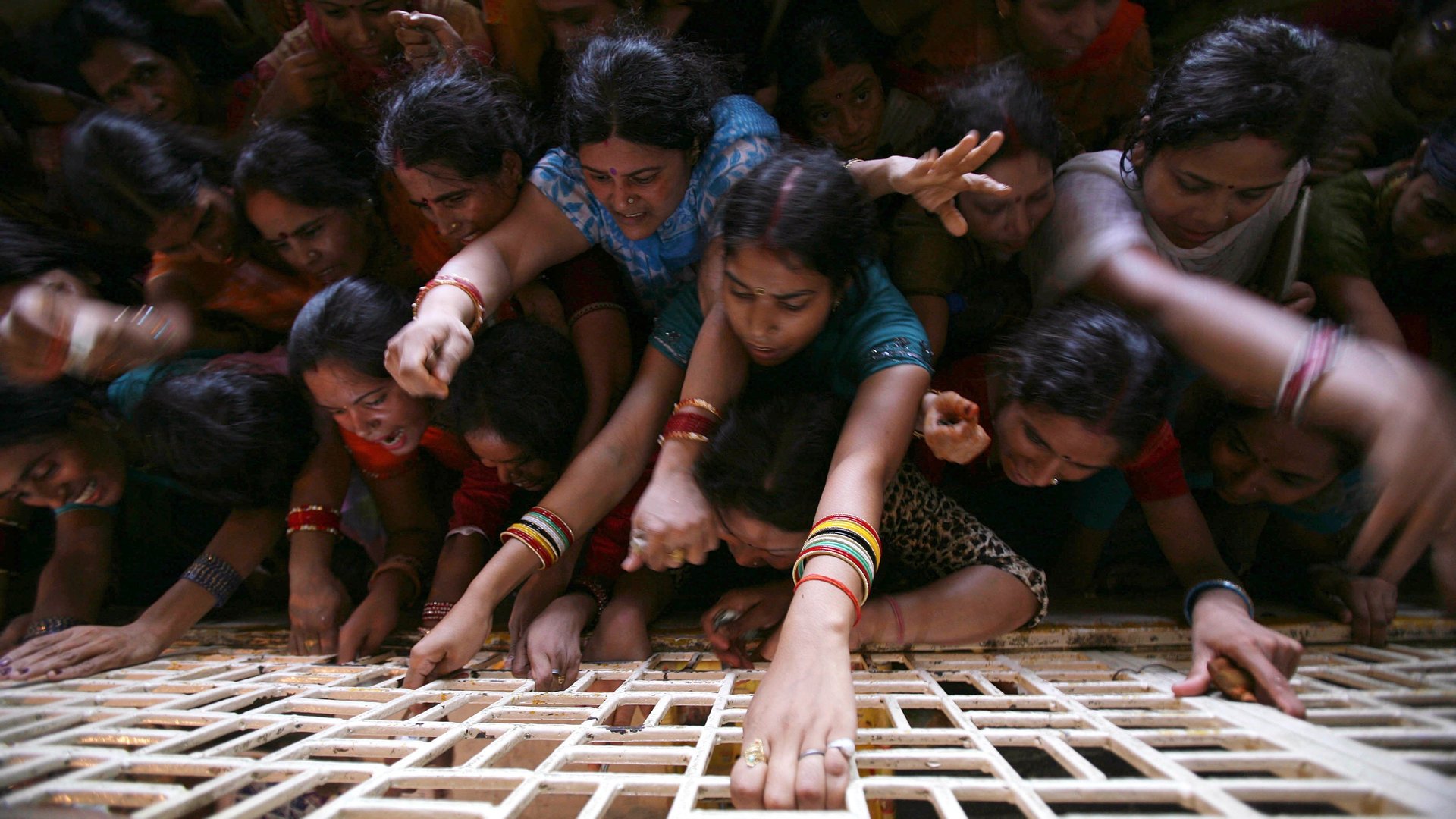The world’s third-worst airline has come up with a bizarre assigned seating plan to make women feel safer
India’s national carrier will soon let women choose to purchase seats in a female-only section of its airplanes.


India’s national carrier will soon let women choose to purchase seats in a female-only section of its airplanes.
Air India is reserving the third row of its economy section for women only, according to The Hindu newspaper. Lone female domestic flyers will have the option of reserving these six seats at no additional cost starting Jan. 18. ”We feel, as national carriers, it is our responsibility to enhance comfort level to female passengers,” said Meenakshi Malik, general manager of Air India’s revenue management. Women traveling with families cannot select these seats. The airline has not outlined how it will enforce this policy but, presumably, to make sure only single travelers get the seat, women booking in groups will not be allowed to make selections in the reserved region.
The measure is being implemented on the heels of some up-in-the-air controversies. In December last year, a business class flyer switched to an economy class seat during a Mumbai-Newark flight to sit next to a female passenger and allegedly groped her once she fell asleep. And an Air India flight attendant reported that she was molested by a passenger on a Delhi-Muscat flight in the first week of January. The two untoward incidents prompted the airline to keep handcuffs onboard their domestic flights to tame unruly passengers.
The new announcement also comes days after another smudge on the airline’s reputation: On Jan. 08, aviation insights company FlightStats labeled Air India the third-worst-performing international airline in the world, based on the fact that its flights were delayed nearly 40% of the time. A spokesperson from the airline denounced the FlightStats report as “fabricated.”
The move to keep men and women from mingling onboard is reportedly a first when it comes to airlines but public transport on the ground in India has for long segregated the two genders. Local and long-distance buses, trains, and metros have different seats for women. Pink auto rickshaws, with women drivers serving women riders, have hit the streets of Mumbai, Noida, and other cities.
Other countries have employed similar strategies to combat harassment: Mexico introduced female-only metro cars and China has been experimenting with single-sex buses for women. Buses dedicated to women have sprung up in the disputed state of Jammu & Kashmir in India, too, where surveys suggest nine in 10 women have been harassed while traveling on regular public buses.
However, isolating women has made little difference. For example, women in India continue to be subjected to sexual assault by forced intruders in the ladies compartments of trains. Experts argue that sex segregation is ultimately futile because it doesn’t stop men from harassing women before or after the journey—in airports, at bus stops, and at railway stations. And giving women the “option” of buying a plane ticket in a women-only row just feels like another addition to the list of to-dos, such as dressing conservatively and staying home at night, that put the onus of women’s safety on the victim rather than the perpetrator.
Which is why Air India’s attempts to up comfort levels for woman have mostly left Indians unimpressed. Jitendra Bhargava, a former Air India executive director and author of The Descent of Air India, described the gendered seating plan as a “misplaced priority.” Many social media users have criticized it as a blow to gender equality, possibly paving the way for more discrimination in the future.